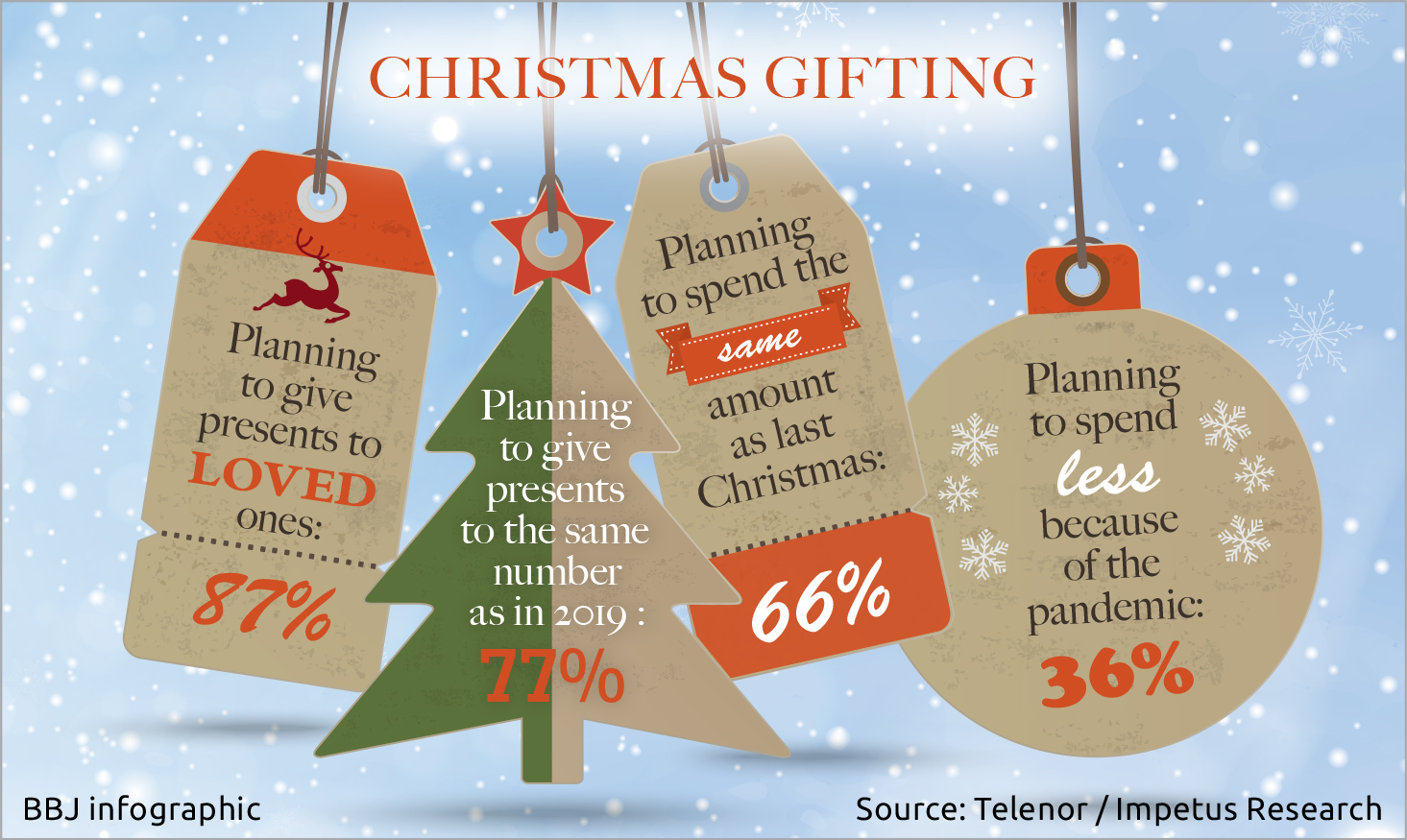Enthusiasm for Sales may Light up Christmas Shopping Spirit

Photo by Nadya Buyanowa / Shutterstock.com
Although COVID-19 has hit non-food and pharmacy retail hard, shoppers’ data during Black Friday discounts could indicate a spending spree for Christmas 2020, at least online.
Photo by Nadya Buyanowa / Shutterstock.com
Gift planning behavior also hints that people will not be frugal this year; however, buyers appear to be increasingly price-conscious. These tendencies seem to be supported by the growing popularity of online shopping.
As the coronavirus pandemic has pushed people to work and learn from home, and the significance of digital communication has seen rapid growth, e-commerce this year has, unsurprisingly, been performing better than ever before.
“2020 has brought unprecedented growth in online commerce. The number of active online shoppers and e-commerce providers has also increased significantly,” notes Sándor Kiss, CEO of Barion Payment, an electronic payment solutions developer and provider.
“The impact of COVID-19 on the e-commerce market is well exemplified by the strong growth in online payments in April. The market has generated numbers that it is accustomed to during the Christmas period,” he adds.
Barion’s clients grew two and a half-fold in the first 10 months of the year, boosted by the effects of the pandemic and specifically lifted by traders’ preparations for Black Friday and the pre-Christmas period.
In the first half of the year, purchases made via the internet grew by 35%, as compared to the same period a year earlier, exceeding gross HUF 355 billion, according to researcher GKI Digital’s data.
By the end of the year, pundits expect online shopping interest to develop even further. This year, Hungary could see accumulated online purchases of more than HUF 1 trillion, according to Unas, a Hungarian company offering webshop hosting and maintenance services. Compared with 2019, Unas says it is receiving 70% more orders for its services in the same period.
More all Round
“The increase is due to the opening of many new stores, but the turnover of existing ones has also increased,” Tamás Kóczán, Unas founder and CEO, says.
According to his firm, changing habits due to COVID-19 are well reflected in the numbers. Laptops, web cameras and other items needed for working from home are receiving increased attention, as well as sports equipment for exercising in the house. The number of web stores for healthier eating, or ordering FMCG items, have also increased since the pandemic started.
What can we expect from the Christmas period in terms of purchases? Hungarian e-commerce retailer Extreme Digital’s data relating to Black Friday revealed that total orders grew by 43% and buyers spent 46% more money on November 13, the day of its Black Friday discount, than in the previous year.
The basket value of Hungarian buyers was almost a third more than in 2019. On one day, the total value of items purchased via Extreme Digital’s store was around HUF 2 bln, an amount that is usually sold over one week.
The pandemic has also changed buyers’ behaviors. The number of people browsing Extreme Digital’s online store grew to 40%, although interestingly the number of people accessing websites via smartphones dropped to 60%. This may mean that, due to working from home, people are choosing the comfort of bargain hunting via their laptops or desktops, instead of using smartphone devices on the go.
Black Friday’s buying enthusiasm may linger on to the run up to Christmas 2020. “For years now, the growing trend has emerged for Black Friday sales online and offline to last not just that one day, but rather for days or weeks, even up until Christmas,” research from Reacty Digital and LogiNet said.
“Half of shoppers (49%) are especially pleased to be able to avoid the ‘everything-in-one-day’ stress. Continuous promotions for longer periods of time are also necessary because not all shoppers know exactly when stores announce their Black Friday sales,” the research adds.
It found that the shadow of the coronavirus did not fall on Black Friday purchases. This brings optimism for Christmas shopping, even if the research finds that buyers are becoming more conscious about the prices of items.
Traditional Christmas
Christmas spirit is also kept alight by the findings of Impetus Research’s representative survey, commissioned by Hungarian telco Telenor. Although conditions are far from ideal due to the coronavirus, Hungarians appear to be planning to stick to their Christmas celebrations.
Giving gifts will still be an important part of the festivities, as 87% of the surveyed participants plan to give presents to their loved ones, while 77% are planning to give presents to the same amount of people as last year. Some 66% are planning to spend the same amount of money on gifts, although 36% expect to spend less than they would have done without the pandemic happening.
The spread of digitalization brought positive contributions to Hungarian online shopping as every third Hungarian makes more purchases online since the coronavirus arrived in the country.
They also are increasingly conscious: 58% of shoppers spend more time learning the desired products before physically attending stores, while 59% pay special attention to price and try to buy cheaper options.
These findings, as well as Black Friday data, point toward a promising Christmas shopping period. The Reacty Digital and LogiNet research warns, though, that with increased online traffic this year, delays and stock shortages could taint the customer experience if stores are underprepared for the holiday season.
“Shoppers use their accumulated knowledge to make a decision; this is the time for webshops to implement these experiences as well. Online shops should prepare for this promotional period with improved performance, strategic resource management and testing ahead of time,” says Zsigmond Máriás, CEO of LogiNet Systems Kft.
Unas’ Kóczán also has an important warning: “The key is to think about foreign orders. The well-known cheaper products of Chinese online stores are no longer sure to arrive in time for Christmas,” he says, noting international logistics and supply chains are having to cope with the difficulties the pandemic has caused.
“Regardless, we recommend that everyone shop in a Hungarian-owned web store and support local merchants,” Kóczán added.

This article was first published in the Budapest Business Journal print issue of November 27, 2020.
SUPPORT THE BUDAPEST BUSINESS JOURNAL
Producing journalism that is worthy of the name is a costly business. For 27 years, the publishers, editors and reporters of the Budapest Business Journal have striven to bring you business news that works, information that you can trust, that is factual, accurate and presented without fear or favor.
Newspaper organizations across the globe have struggled to find a business model that allows them to continue to excel, without compromising their ability to perform. Most recently, some have experimented with the idea of involving their most important stakeholders, their readers.
We would like to offer that same opportunity to our readers. We would like to invite you to help us deliver the quality business journalism you require. Hit our Support the BBJ button and you can choose the how much and how often you send us your contributions.







